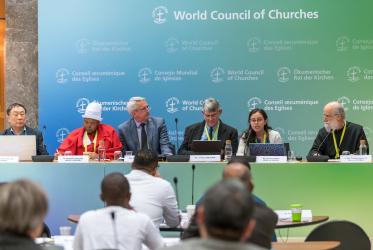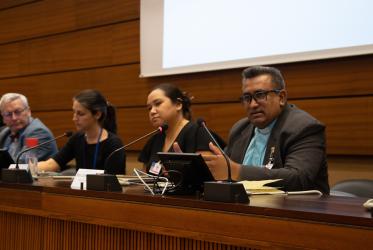Displaying 1 - 20 of 63
Thirsting for peace: Gaza's water woes in the midst of war
31 January 2024
WCC interreligious journal focuses on “healing wounded memories”
16 February 2023
Pandemic and pedagogy: what are the valuable lessons?
21 December 2022
WCC stands in solidarity with victims of major flood in Brazil
17 February 2022
Dr Abuom reflects on women of faith as healers of creation
05 October 2021
Workshop on HIV stigma, treatment adherence opens in Tanzania
29 September 2021
















